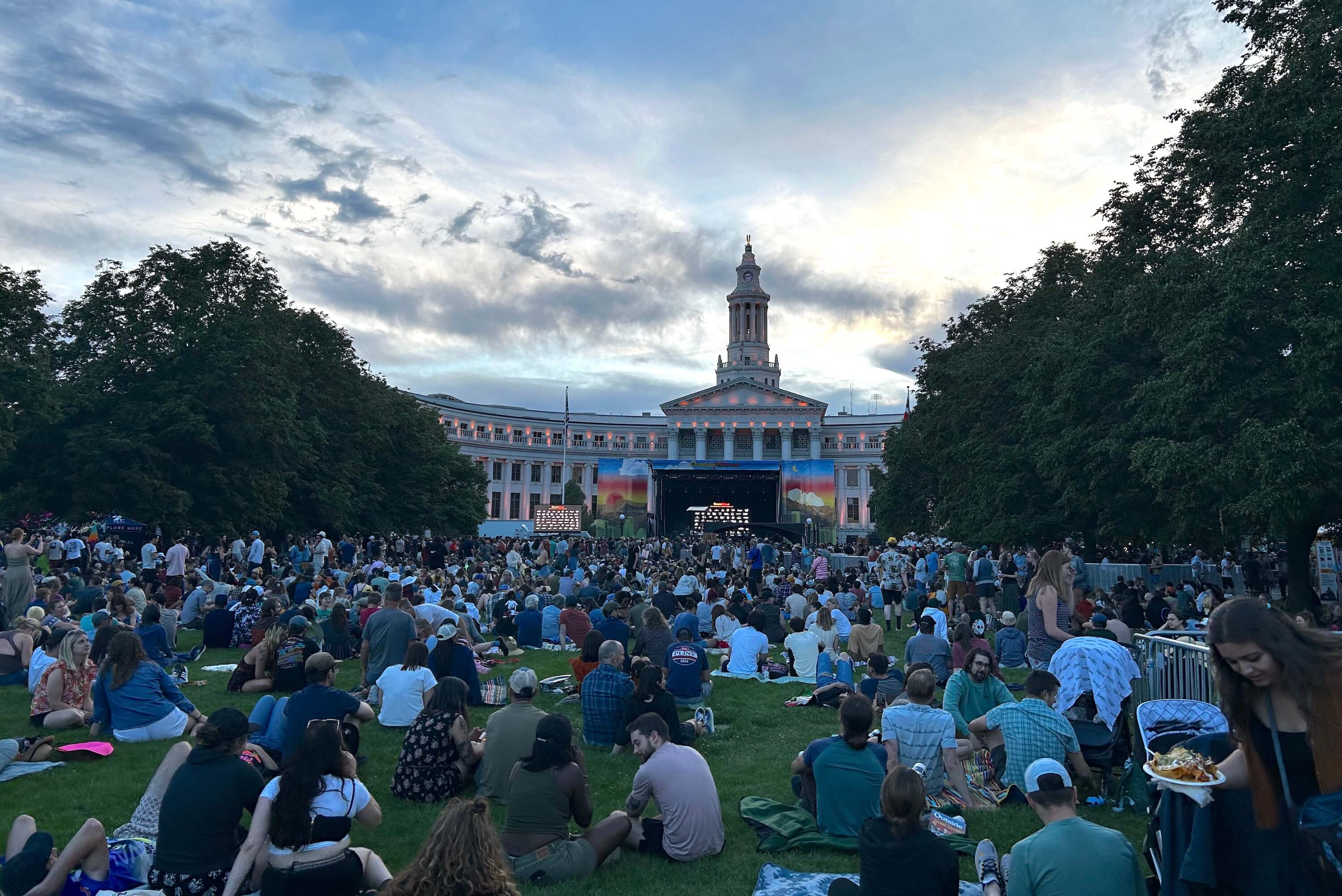What Music Festivals Reveal About the Future of Cities

September 4, 2025
Originally published by Daily Camera, August 31, 2025.
 Music does not just fill the air, it fills lives. It heals the soul, energizes athletes, and brings stories to life on stage. But lately, its reach goes further: music is shaping how cities grow and thrive. It is against this backdrop that we welcome the inaugural Boulder Roots Music Festival.
Music does not just fill the air, it fills lives. It heals the soul, energizes athletes, and brings stories to life on stage. But lately, its reach goes further: music is shaping how cities grow and thrive. It is against this backdrop that we welcome the inaugural Boulder Roots Music Festival.
More than once, I have watched commuters heading home on a Friday afternoon, windows cracked, tapping steering wheels to the beat, mouthing lyrics as if auditioning for The Voice. I will admit, I have been guilty of the same. I could not tell you what those drivers were listening to, but I saw something unmistakable: a glimpse of an underestimated catalyst in economic development — music.
According to the U.S. Bureau of Economic Analysis, arts and cultural production added $265.8 billion to the economy in 2023. Overall, the sector totaled $1.17 trillion, or 4.2% of GDP. Festivals are among the most visible drivers, channeling tourism dollars into local businesses while shaping civic identity.
Consider Raleigh’s Dreamville Festival, which drew 100,000 fans and generated a $145.9 million economic impact.
The same logic applies to Boulder. While we do not host mega-events of that scale, the Boulder Roots Music Festival is part of the same trend: festivals as powerful drivers of jobs, tax revenue, and identity. In Telluride, café owner Megan Ossola says festival weekends are “what get me ahead for the shoulder season,” as lines stretch down the block and business spills into shops and restaurants.
But the stakes run deeper. A strong music scene attracts talent. That connection between vibrancy and competitiveness is something I hear directly from business leaders. I recently spoke with a quantum company that chose Boulder for its headquarters and another weighing a move from abroad. Both pointed to the same reasons: quality of life, a supportive ecosystem, and cultural vibrancy that includes restaurants, recreation, inclusiveness, and music.
Festivals create that vibrancy. They attract visitors, and some of those visitors become the future talent who stay. And talent is the true magnet for discerning businesses.
Thus, while festivals act as gateways to tourism, their impact runs deeper. Austin and Nashville have used their music scenes to win corporate relocations, citing the “cool factor” and lifestyle appeal as decisive advantages. In each case, music is not just entertainment, it is strategy for urban competitiveness.
Global organizations echo this point. The World Intellectual Property Organization recently noted, “Countries that encourage music creativity tend to experience stronger resilience against global trends . . . essential to a flourishing creative sector and the preservation of culture.” In an era where talent is currency, sometimes a guitar riff is worth as much as a tax credit.
Thanks to the leadership of the Roots Music Project and Caruso Ventures, Boulder is taking a major step forward into this paradigm of music and economic vitality with the launch of the Boulder Roots Music Festival. As Dan Caruso, managing director of Caruso Ventures, puts it, “Community is more essential now than at any other point in my lifetime. At a time when politics divide us and screens isolate us, a vibrant festival has the power to bring us back together. With music as the common language, downtown Boulder as the stage, and innovation as the spark, we can create friendships and connections that unite us. That’s why I’m all in on the Boulder Roots Music Fest.”
That spirit of unity also connects to Boulder’s history. As Dave Kennedy, executive director of the Roots Music Project, explains, “Boulder’s incredible music scene of the ’70s, ’80s and ’90s was our inspiration. We honor that legacy and we hope that Boulder Roots Music Festival will be the catalyst for a whole new generation of musicians, entrepreneurs and creators. That’s what it is all about.”
With that blend of legacy and momentum, the Roots Music Festival founders know Boulder thrives on entrepreneurship and startup culture. Just as startups thrive on shared values, cities thrive on shared culture. Techstars made “Give First” the unique software for Boulder startups. The Boulder Roots Music Festival aims to be the second operating system — our software for belonging. It will reveal Boulder as more than academic prestige and startup grit, but also a place where people dance in the streets and sing to the moonlight.
The direct economic benefits are clear: The Boulder Roots Music Festival will be a reason for business travelers to linger longer and for baristas to earn a month’s worth of tips in a weekend.
Boulder’s first-ever Boulder Roots Music Festival is more than a concert lineup. It is a bet on stability rooted in creativity, a boost for downtown vitality, small-business survival, and a magnetic pull that keeps talent anchored in our community. That bet is also a strategy grounded in recognizing that innovation must be paired with quality of life, where supporting music is not just about cultural enrichment, it is an investment in the future of urban resilience.
If we follow that strategy and welcome the Boulder Roots Music Festival with open arms, the soundtrack of our city will not just entertain us, it will help sustain us.
